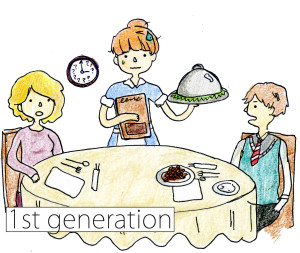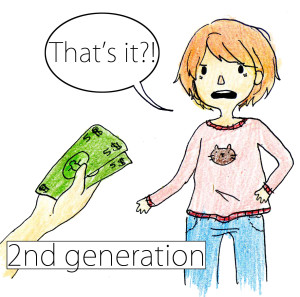The gap between immigrants and those born in America is starkly present. As students at TCHS, we are largely exposed to this concept and many fall into one category or the other. However, we rarely note the similarities between varying cultures and homelands.
In many cases, students who were born here receive more privileges than their parents. Many who have started a new life here were raised with a heavy emphasis on earning a good education in order to obtain a stable means of living.
“For my parents, it was a lot harder on them in India. My mom would wake up at four in the morning to study and walk one to two miles to the bus station,” Sophomore Sanya Mital said. “Schools were a lot stricter and you had to study hard to get into a good school. Here in America, our education is taken for granted.”
Often times, families find themselves integrating their cultural customs into their lives in the U.S. Though certain traditions may be considerably downplayed, whether it be the Diwali Festival of Lights or the Lunar New Year, the importance of remembering their origins remains.
“My parents have always tried to keep the same traditions, so we celebrate every holiday the same way they did in Egypt,” Senior Miriam Soliman said. “Because I’m Coptic Orthodox, most of our traditions are tied to my religion. So for example, celebrating Christmas on Jan. 7 is a tradition that I celebrate and my parents celebrated in Egypt.”
Second generation Americans also have a more liberal way of life. There is a higher toleration of beliefs and cultures. In many other countries, practicing certain traditions may be looked down upon or even forbidden.
“We grew up in an extremely conservative culture. We also couldn’t state our opinions as freely as you do here,” Ms. Amany Soliman said. “In Egypt when we were growing up, girls and boys went to different schools up until college. There is no communication between boys and girls possible at school.”
In America, students are also offered a multitude of opportunities and resources—privileges that their parents may not have had access to. For some first generation parents, they had to learn to be more self-reliant in their teenage years.
“Growing up in Vietnam, my mom had to work in her mom’s store. When she grew up, it was hard because she had to do everything for herself,” Junior Adam Do said. “No one was really taking care of her.”

